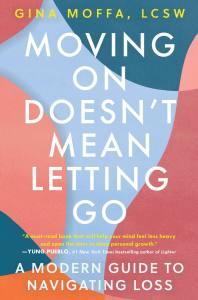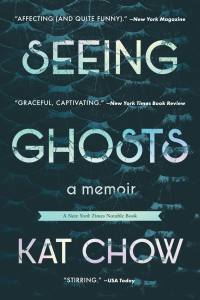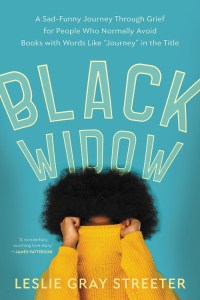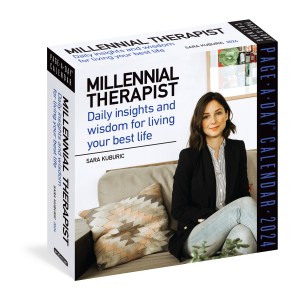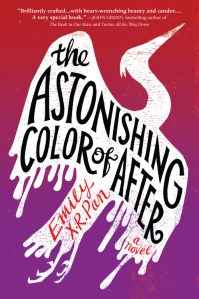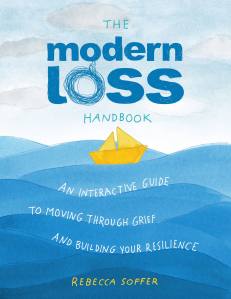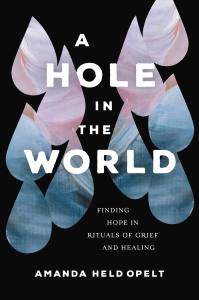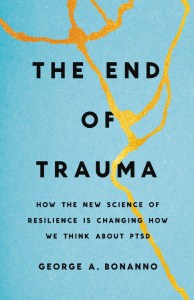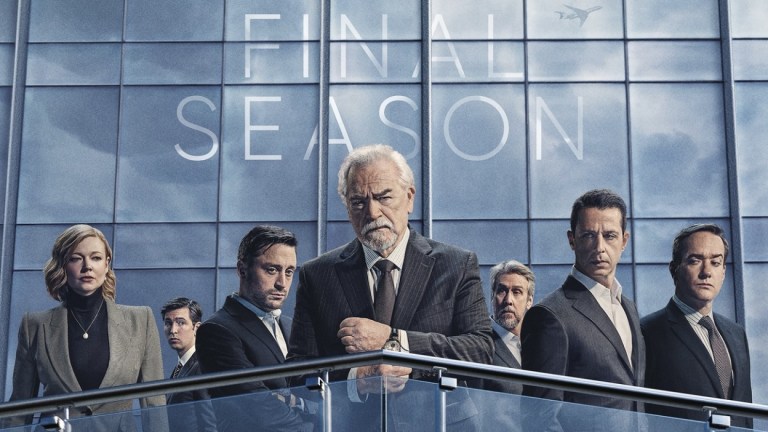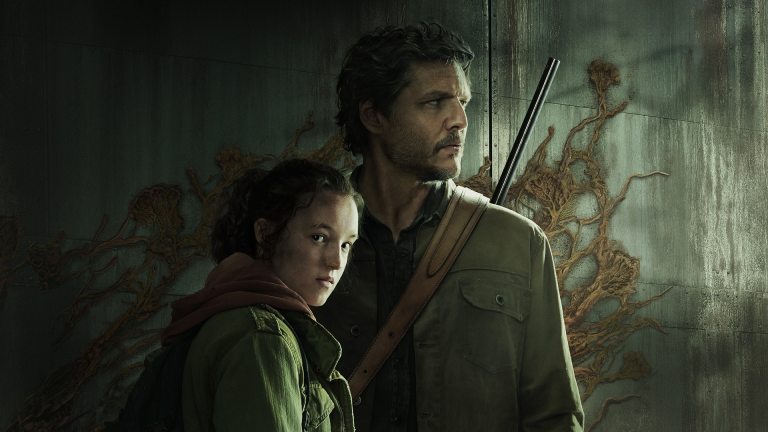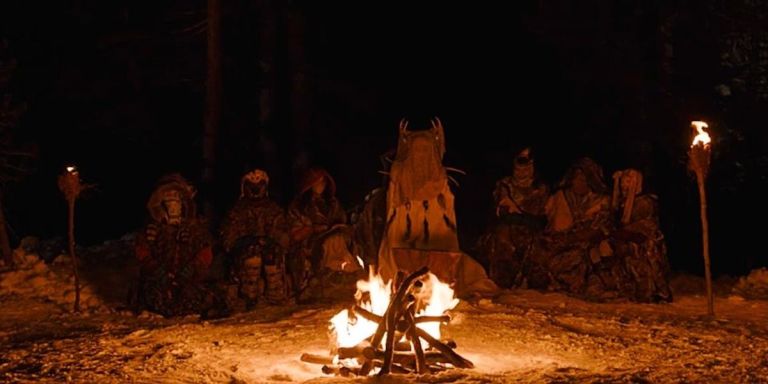Expert Books to Read if You Loved ‘Shrinking’
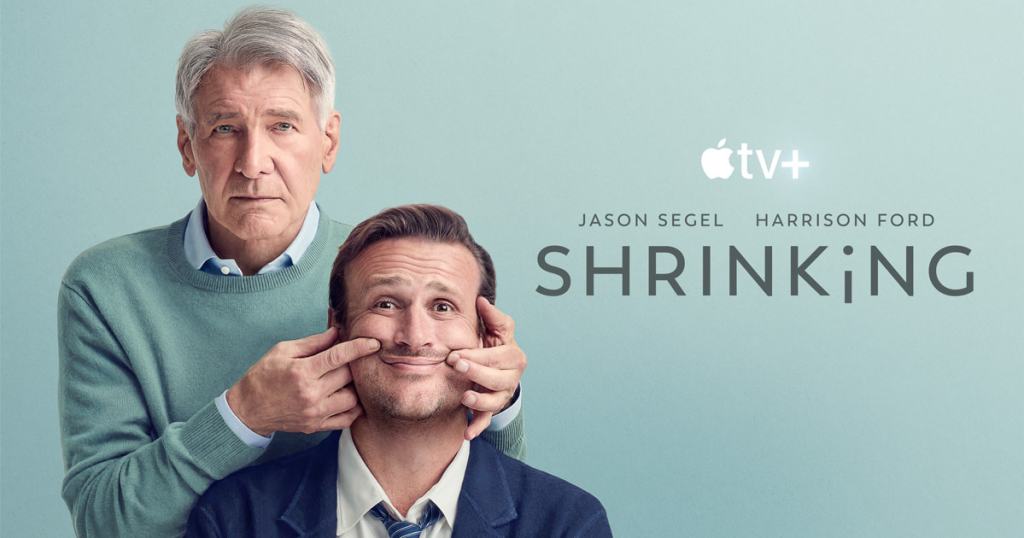
image courtesy of Apple
Shrinking, the new therapeutic comedy following a widowed therapist who works his way through grief using his relationships with patients, colleagues and family, has opened a door for larger conversations surrounding loss and turns the emotion into stomach-aching laughter you didn’t know you needed. Here are our trusted recommendations for books about understanding grief, the grieving process and the healing journey.
In Grief is Love, author Marisa Renee Lee reveals that healing does not mean moving on after losing a loved one—healing means learning to acknowledge and create space for your grief. It is about learning to love the one you lost with the same depth, passion, joy, and commitment you did when they were alive, perhaps even more. She guides you through the pain of grief—whether you’ve lost the person recently or long ago—and shows you what it looks like to honor your loss on your unique terms, and debunks the idea of a grief stages or timelines. Grief is Love is about making space for the transformation that a significant loss requires.
At its core, Grief is Love explores what comes after death, and shows us that if we are able to own and honor what we’ve lost, we can experience a beautiful and joyful life in the midst of grief.
Winner: Silver Nautilus Book Award, Death & Dying/Grief & Loss
Licensed grief and trauma therapist Gina Moffa illuminates a non-linear path through grief, with tools and practices to grieve at your own pace and use loss as a catalyst for a more connected, meaningful life moving forward—perfect for readers of Grief Day by Day and It's OK That You're Not OK.After nearly two decades of clinical experience and her own journey after losing her mother to cancer, Gina Moffa, LCSW offers knows all too well how disorienting, painful, and lonely grief can be. In Moving on Doesn’t Mean Letting Go, she offers a heartfelt, practical map through loss—one that can shift the pain of your grief even when things feel unpredictable and overwhelming. With her help you’ll learn to:
- Navigate the initial shock of the “griefall”
- Recognize your unique grief rhythm
- Get in touch with your needs, feelings, and boundaries
- Mange social media and interactions with the outside world
- Connect mind and body through somatic exercises and self-reflections
“A must read. Help your mind feel less heavy and open the door to deep personal growth" —Yung Pueblo, #1 New York Times bestselling author of Lighter and Clarity & Connection.
Kat Chow has always been unusually fixated on death. She worried constantly about her parents dying—especially her mother. A vivacious and mischievous woman, Kat’s mother made a morbid joke that would haunt her for years to come: when she died, she’d like to be stuffed and displayed in Kat’s future apartment in order to always watch over her.
After her mother dies unexpectedly from cancer, Kat, her sisters, and their father are plunged into a debilitating, lonely grief. With a distinct voice that is wry and heartfelt, Kat weaves together a story of the fallout of grief that follows her extended family as they emigrate from China and Hong Kong to Cuba and America. Seeing Ghosts asks what it means to reclaim and tell your family’s story: Is writing an exorcism or is it its own form of preservation? The result is an extraordinary new contribution to the literature of the American family, and a provocative and transformative meditation on who we become facing loss.
AN NPR BOOKS WE LOVE 2021 PICK * A TIME MUST-READ BOOK OF 2021 PICK * A NEW YORK TIMESNOTABLE BOOK OF 2021 * A HARPER’S BAZAAR BOOK YOU NEED TO READ IN 2021 * A TOWN & COUNTRYBEST BOOK OF 2021 PICK * A FORTUNE BEST BOOK OF 2021 PICK
Leslie Gray Streeter is not cut out for widowhood. She’s not ready for hushed rooms and pitying looks. She is not ready to stand graveside, dabbing her eyes in a classy black hat. If she had her way she’d wear her favorite curve-hugging leopard print dress to Scott’s funeral; he loved her in that dress! But, here she is, having lost her soulmate to a sudden heart attack, totally unsure of how to navigate her new widow lifestyle. (“New widow lifestyle.” Sounds like something you’d find products for on daytime TV, like comfy track suits and compression socks. Wait, is a widow even allowed to make jokes?)
Looking at widowhood through the prism of race, mixed marriage, and aging, Black Widow redefines the stages of grief, from coffin shopping to day-drinking, to being a grown-ass woman crying for your mommy, to breaking up and making up with God, to facing the fact that life goes on even after the death of the person you were supposed to live it with. While she stumbles toward an uncertain future as a single mother raising a baby with her own widowed mother (plot twist!), Leslie looks back on her love story with Scott, recounting their journey through racism, religious differences, and persistent confusion about what kugel is. Will she find the strength to finish the most important thing that she and Scott started?
Discover a year of perspective-changing insight from Sara Kuburic, the wise voice behind the hugely popular @millenial.therapist Instagram account. An existential therapist, she delivers a mixture of advice and self-care every day. Discover hard truths: Sometimes the best thing we can do for ourselves is to stop postponing the changes we need to make. A dozen things make a relationship feel safe, and 6 tips for building trust with others. And reminders: A true apology comes with changed behavior. All for a 2024 filled with personal growth, healthier relationships, and a better life balance.
Printed on responsibly sourced paper and 100% recyclable.
A stunning, heartbreaking debut novel about grief, love, and family, perfect for fans of Jandy Nelson and Celeste Ng.
Leigh Chen Sanders is absolutely certain about one thing: When her mother died by suicide, she turned into a bird.
Leigh, who is half Asian and half white, travels to Taiwan to meet her maternal grandparents for the first time. There, she is determined to find her mother, the bird. In her search, she winds up chasing after ghosts, uncovering family secrets, and forging a new relationship with her grandparents. And as she grieves, she must try to reconcile the fact that on the same day she kissed her best friend and longtime secret crush, Axel, her mother was taking her own life.
Alternating between real and magic, past and present, friendship and romance, hope and despair, The Astonishing Color of After is a stunning and heartbreaking novel about finding oneself through family history, art, grief, and love.
Stay connected to your person, yourself, and the world around you in the aftermath of loss.
Modern Loss is all about eradicating the stigma and awkwardness around grief while also focusing on our capacity for resilience and finding meaning. In this interactive guide, Modern Loss cofounder Rebecca Soffer offers candid, practical, and witty advice for confronting a future without your person, honoring their memory, dealing with trigger days, managing your professional life, and navigating new and existing relationships. You’ll find no worn-out platitudes or empty assurances here. With prompts, creative projects, innovative rituals, therapeutic-based exercises, and more, this is the place to explore the messy, long arc of loss on your own timeline—and without judgment.
In a raw and inspiring reflection on grief–selected by Publishers Weekly as one of the best books of the year–a mourning sister processes her personal story of loss by exploring the history of bereavement customs.
When Amanda Held Opelt suffered a season of loss—including three miscarriages and the unexpected death of her sister, New York Times bestselling writer Rachel Held Evans—she was confronted with sorrow she didn’t know to how face. Opelt struggled to process her grief and accept the reality of the pain in the world. She also wrestled with some unexpectedly difficult questions: What does it mean to truly grieve and to grieve well? Why is it so hard to move on? Why didn’t my faith prepare me for this kind of pain? And what am I supposed to do now?
Her search for answers led her to discover that generations past embraced rituals that served as vessels for pain and aided in the process of grieving and healing. Today, many of these traditions have been lost as religious practice declines, cultures amalgamate, death is sanitized, and pain is averted.
In this raw and authentic memoir of bereavement, Opelt explores the history of human grief practices and how previous generations have journeyed through periods of suffering.
With “groundbreaking research on the psychology of resilience” (Adam Grant), a top expert on human trauma argues that we vastly overestimate how common PTSD is in and fail to recognize how resilient people really are.
After 9/11, mental health professionals flocked to New York to handle what everyone assumed would be a flood of trauma cases. Oddly, the flood never came.
In The End of Trauma, pioneering psychologist George A. Bonanno argues that we failed to predict the psychological response to 9/11 because most of what we understand about trauma is wrong. For starters, it’s not nearly as common as we think. In fact, people are overwhelmingly resilient to adversity. What we often interpret as PTSD are signs of a natural process of learning how to deal with a specific situation. We can cope far more effectively if we understand how this process works. Drawing on four decades of research, Bonanno explains what makes us resilient, why we sometimes aren’t, and how we can better handle traumatic stress.
Hopeful and humane, The End of Trauma overturns everything we thought we knew about how people respond to hardship.

